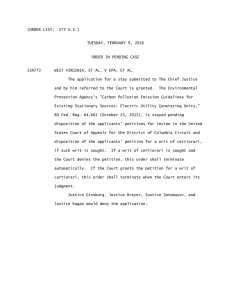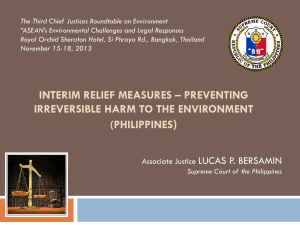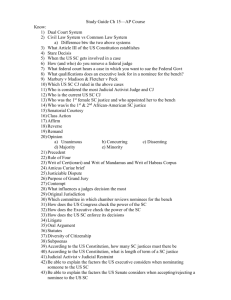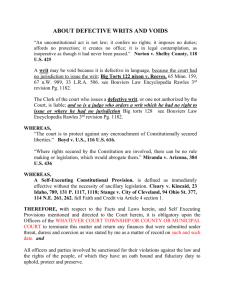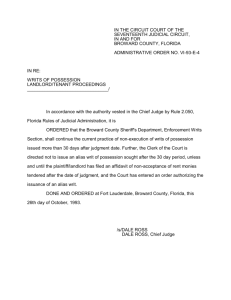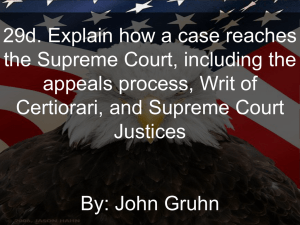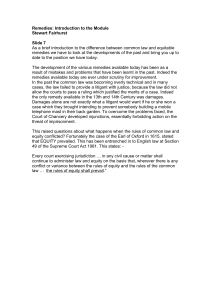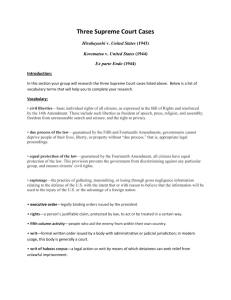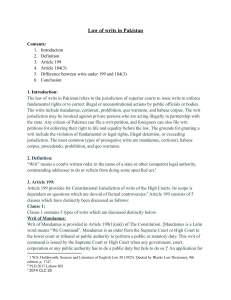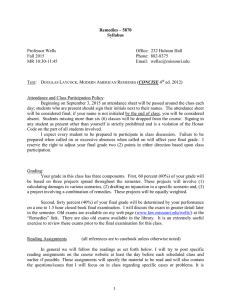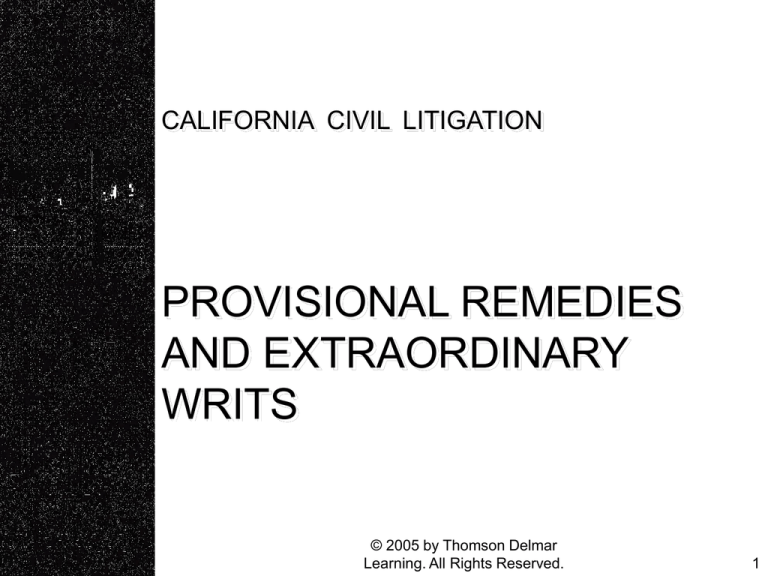
CALIFORNIA CIVIL LITIGATION
PROVISIONAL REMEDIES
AND EXTRAORDINARY
WRITS
© 2005 by Thomson Delmar
Learning. All Rights Reserved.
1
PROVISIONAL REMEDIES—
protect rights of litigant pending final
resolution.
2
PROVISIONAL REMEDIES
Include:
• Injunctions
• Receiverships
• Claim & Delivery
• Attachment
3
INJUNCTIONS
Temporary Restraining Orders (TROs):
immediate order expires in days
Preliminary Injunctions:
maintains status quo until trial
Permanent Injunctions:
final judgment may include orders
4
INJUNCTIONS
Level of proof increases at each level
Bond may be required until trial*
Preference on trial calendar
* required in federal court
5
INJUNCTION ISSUES
Is legal remedy adequate?
Administrative remedies exhausted?
Irreparable injury if not granted?
6
RECEIVERS
Appointed by court to manage business
pending trial
Have specific powers ordered by court
Expensive but effective
Granted on noticed motion
7
CLAIM AND DELIVERY—
allows complainant to take possession of
personalty pending resolution of
dispute.
8
CLAIM AND DELIVERY
Obtained by
1. Noticed motion
2. TRO
3. Ex parte motion
9
CLAIM AND DELIVERY
May require a bond
Enforced by sheriff
10
ATTACHMENT
Allows complainant possession of
defendant's assets pending resolution
Limited to commercial disputes
Process similar to claim and delivery
11
EXTRAORDINARY WRITS
Mandamus
Administrative mandamus
Prohibition
Certiorari
12
MANDAMUS—
writ requires lower court or tribunal to
comply with rules or laws.
13
MANDAMUS
Three levels:
• Peremptory writ:
immediate
• Alternative writ:
if cause to deny not shown
• Permanent writ:
final judgment
14
ADMINIISTRATIVE
MANDAMUS—
writ sought against administrative agency.
Requires
• exhaustion of administrative
remedies
• record of administrative process
15
PROHIBITION—
writ prevents lesser tribunal from
exceeding authority.
16
CERTIORARI—
writ sought to obtain review of higher
tribunal of past act of lesser.
17
SUMMARY
Provisional Remedies to
Manage Cases During
Disputes, Writs to Obtain
Orders of Court
18

